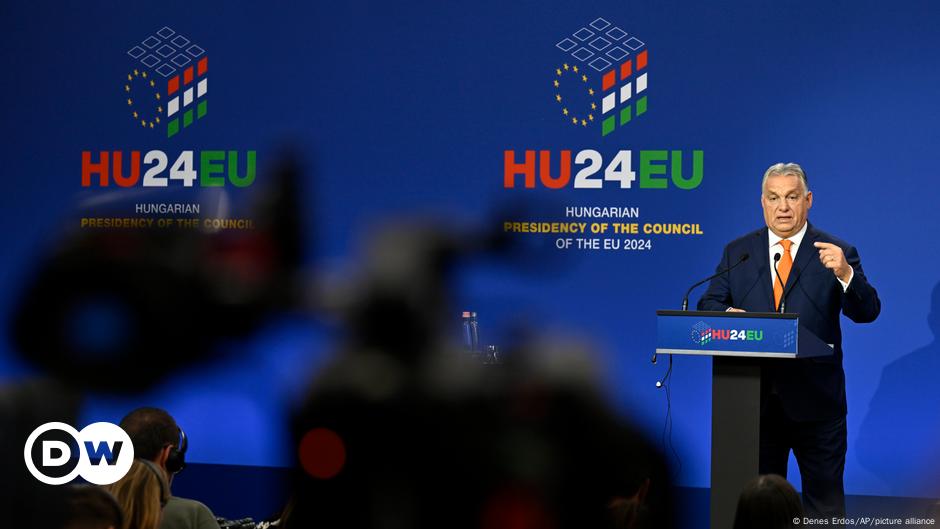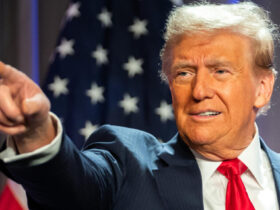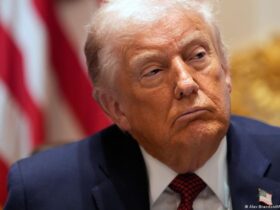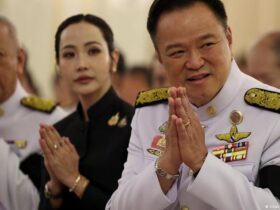Viktor Orban’s EU Council presidency is about to end.
Nominally, an EU member state holds the six-month presidency of the EU Council, but in the case of Hungary, it is safe to talk about only one person. In the Hungarian government, Orban is the only one who matters.
This remains the case during the term of the Hungarian Council Presidency, which began on July 1, 2024.
At this point, a certain diplomatic Orban fatigue had already set in across Europe. The Hungarian Prime Minister was ignored from important initiatives and agreements, especially in support of Ukraine. His continued veto policy had pushed the troublemaker to diplomatic marginalisation.
Six months later, it would be fair to say that Orbán has made the most of his EU Council presidency.
His controversial statements, appearances and initiatives generated maximum outrage.
His agitation against “Brussels bureaucrats” reached unprecedented levels and culminated with his infamous claim a few days before the end of his presidency.
On December 21, 2024, Orbán addressed the EU during his traditional international year-end press conference, saying that “Brussels wants to turn Hungary into Magdeburg.”
Orban’s ‘peace mission’
The country holding the Presidency of the Council of the European Union is expected to promote good, harmonious cooperation between EU Member States and the EU institutions. It should ensure continuity of the EU agenda and promote EU law.
It can set priorities, but must not pursue its own interests, but must act in the interests of the community of EU states.
At least this is what is written on paper.
Although Hungary had prepared priorities for his Council presidency, including strengthening the EU’s competitiveness, a strong enlargement policy for the Western Balkans region, and curbing illegal migration, Orbán mainly focused on his policies. Used the post of President of the Council of the European Union.
Early in his tenure, he launched an uncoordinated diplomatic initiative to end the “Slavic Brotherhood War”, which he calls Russia’s war against Ukraine.
Four days after the start of his presidency, he traveled to Moscow on a “peacekeeping mission” and met with Russian President Vladimir Putin without coordination with the EU and NATO.
Three days earlier, he had made his first bilateral visit to Kiev. No one there knew about Orbán’s planned visit to Russia.
West as ‘warmonger’
This “peacekeeping mission” caused an uproar because Hungary has practically no international diplomatic clout.
Furthermore, because of its anti-Ukrainian and pro-Russian stance, Budapest is not an acceptable mediator, at least not for Ukraine.
Even within NATO, Hungary is no longer considered a reliable partner due to its pro-Russian stance.
Nevertheless, Orbán has so far continued his “peace mission” without any fear.
Just days earlier, after a phone call with Putin, he proposed a “Christmas ceasefire” and a major prisoner swap.
The “mission” came with accusations against the “warmongering West”, the real culprit behind Russia’s war according to Orbán.
Also, the Hungarian Prime Minister repeatedly praised former and future US President Donald Trump as a “peace man” and “the only person on the planet” capable of ending the war in Ukraine.
Mega: ‘Make Europe Great Again’
The Hungarian Prime Minister also launched another important project at the beginning of his presidency of the EU Council.
It is named “Make Europe Great Again”, or MEGA, based on Donald Trump’s claim to “Make America Great Again”, or MAGA.
This included the establishment of the right-wing nationalist-populist group “Patriots for Europe” which became the third largest group in the European Parliament.
It has gathered the most important European right-wing populists as members, including Orbán’s Fidesz, the French National Rally, the Dutch Freedom Party and the Austrian FPÖ. These global nationalists support anti-immigration and sovereigntist positions.
Orban himself speaks of the need to “conquer Brussels” to save Europe from decay and decline.
However, in reality, Orbán has little interest in any kind of united Europe.
For the past few months, he has been promoting the concept of an “economic neutrality policy” for Hungary.
Criticism of ‘economic bloc formation’
The move goes further than continuing Hungary’s existing economic “opening to the east” policy.
Orban criticizes the EU for its “economic bloc formation” and is convinced that Europe in its current form cannot survive global competition. He sees Asia and the BRICS states as the geopolitical centers of the future and believes that they will set the rules as the economically strongest.
While Orbán consistently criticizes the West on moral and ideological grounds, he argues that Hungary, as a small country, should maintain good and ideology-free relations with the world’s power and economic centres, especially China and Russia. .
Hungary will hand over the presidency of the EU Council to Poland at the end of 2024.
The country was a close political ally until voters decided to end the rule of its nationalist right-wing administration in autumn 2023. Now, relations between the two countries are at an all-time low.
The fact that Hungary and Poland are currently far apart from each other became clear even at Christmas.
In a Christmas interview with a pro-government newspaper magyar nemzetOrbán described Russian President Vladimir Putin as “our perfect partner”.
Poland’s Prime Minister Donald Tusk was stunned and posted a reminder on Twitter, formerly Twitter, about Russia’s aggressive actions. On Christmas Eve and Christmas Day, Russia bombarded residential buildings in Kryvyi Rih, the hometown of Ukrainian President Volodymyr Zelensky, and energy facilities across Ukraine with dozens of missiles and drones.
This article was originally published in German.






Leave a Reply